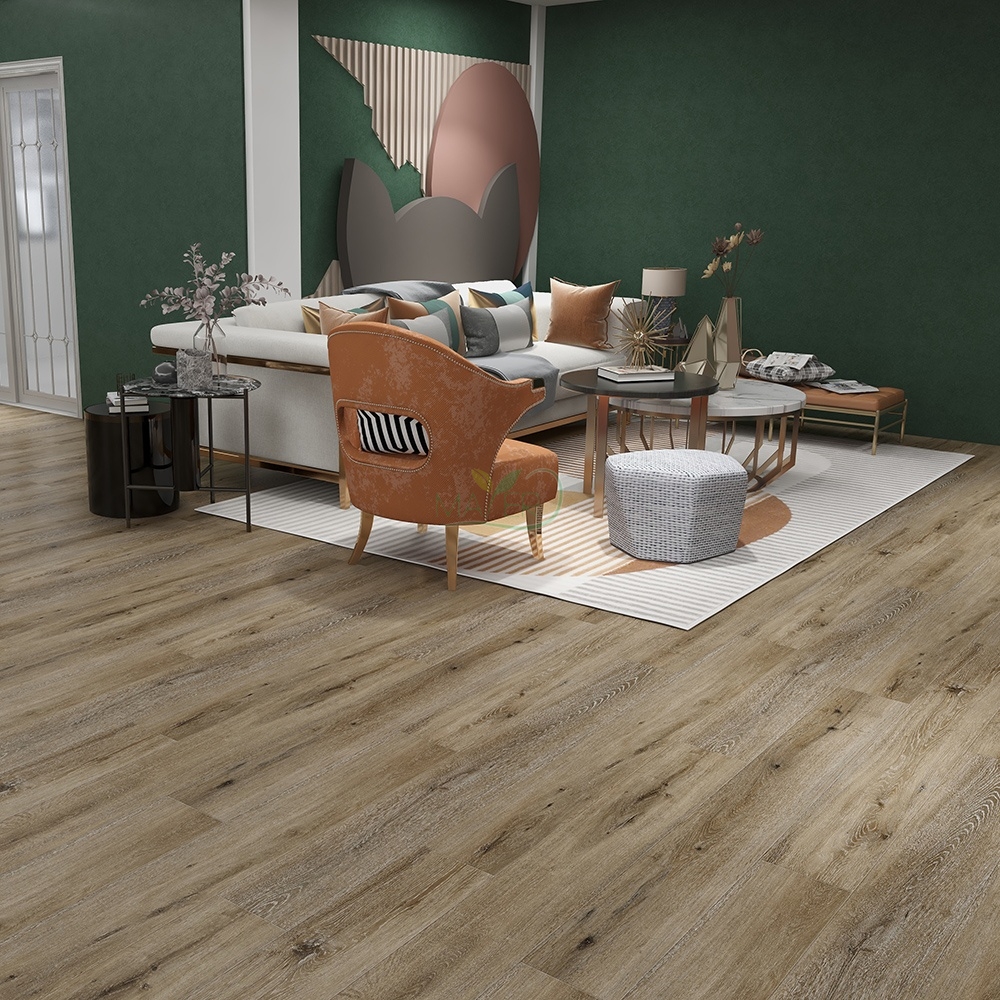SPC (Stone Plastic Composite) flooring and engineered hardwood flooring are two popular options for homeowners seeking durable and stylish flooring solutions. While both offer their own set of advantages, there are several key differences between the two materials that should be considered when making a decision. Let's explore these differences in more detail:
Composition:
SPC Flooring: SPC flooring is a type of rigid core vinyl flooring that is composed of a solid core made from a combination of limestone powder, polyvinyl chloride (PVC), and stabilizers. This composite core provides exceptional stability, durability, and water resistance.
Engineered Hardwood Flooring: Engineered hardwood flooring consists of multiple layers of plywood or high-density fiberboard (HDF) with a thin veneer of real hardwood on the top layer. This construction makes engineered hardwood more stable than solid hardwood and less prone to expansion and contraction due to changes in humidity.

Material:
SPC Flooring: SPC flooring is a synthetic material that mimics the look and feel of natural hardwood, stone, or tile. It is available in a wide range of designs, colors, and textures to suit various aesthetic preferences.
Engineered Hardwood Flooring: Engineered hardwood flooring features a real hardwood veneer on the surface, providing an authentic appearance and texture. It offers the warmth and beauty of natural wood with added durability and stability.
Water Resistance:
SPC Flooring: SPC flooring is inherently waterproof, making it suitable for installation in areas prone to moisture, such as kitchens, bathrooms, and basements. Its waterproof properties make it resistant to spills, stains, and water damage.
Engineered Hardwood Flooring: While engineered hardwood flooring is more water-resistant than solid hardwood, it is not entirely waterproof. Exposure to excessive moisture can cause warping, swelling, and damage to the wood veneer over time.
Durability and Stability:
SPC Flooring: SPC flooring is highly durable and stable, thanks to its rigid core construction. It is resistant to scratches, dents, and wear and tear, making it suitable for high-traffic areas in both residential and commercial settings.
Engineered Hardwood Flooring: Engineered hardwood flooring offers good durability and stability but may be more susceptible to scratching and denting compared to SPC flooring. While it can withstand moderate foot traffic, it may require more maintenance and care to preserve its appearance.
Installation:
SPC Flooring: SPC flooring is typically installed as a floating floor, with planks or tiles interlocking or clicking together without the need for adhesives. This makes installation quick, easy, and suitable for DIY enthusiasts.
Engineered Hardwood Flooring: Engineered hardwood flooring can be installed using various methods, including floating, glue-down, or nail-down installation. The installation process may be more complex and time-consuming compared to SPC flooring, particularly for glue-down or nail-down applications.
In summary, SPC Flooring and engineered hardwood flooring offer distinct advantages and considerations. SPC flooring provides superior water resistance, durability, and ease of installation, making it a practical choice for areas with high moisture levels or heavy foot traffic. On the other hand, engineered hardwood flooring offers the natural beauty and warmth of real wood with added stability and versatility, making it an excellent option for homeowners seeking a classic and timeless flooring solution. Ultimately, the choice between SPC flooring and engineered hardwood flooring depends on your specific needs, preferences, and budget constraints.



